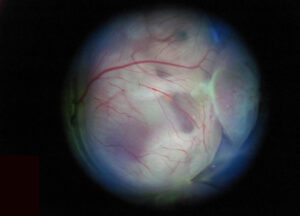
Reproductive toxicology examines the influence of chemical and physical agents on reproduction, which includes adverse effects on both male and female fertility as well as on the developing fetus.
These range from environmental exposures influencing the establishment of healthy pregnancies, impacts on uterine blood supply, growth and development of the placenta, and finally, the influence on the growing fetus and the formation of birth defects. Current research is focused on substances causing birth defects (teratogens), which include endocrine disruptors, pharmaceuticals, environmental factors, and poor nutrition, as well as addressing the impacts of alcohol, smoking, e-cigarettes, and drug use.
Researchers are focused on understanding a broad range of metabolic, epigenetic, and physiological outcomes.
